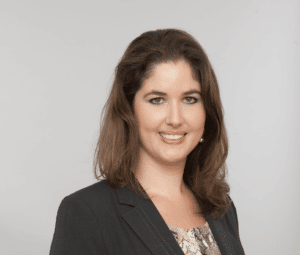Interest in pre-nuptial agreements is growing, making them a more common consideration within financial planning, says Catherine Morgan, legal director and family lawyer at Blake Morgan
We’re living in uncertain times, both from a political and economic perspective. Combined with the impact of the ‘pandemic years’ – which have led many to become more risk-averse and plan ahead – this is influencing how people think about their finances.
Rising interest in pre-nuptial agreements, or ‘pre-nups’, is a clear example of this. Once considered unusual or the territory of the super-rich, more people are now exploring them as an option for the protection of financial assets.
In turn independent financial advisers (IFAs) are faced with questions from clients on the topic and are looking to improve their knowledge to be confident in the advice they are providing.
Our recent survey found four in five financial advisers are interested in learning more about pre-nups. Interestingly, this is almost a third more than when we last asked the question five years ago. We also found over a third have seen a rise in the number of cases where such an agreement would benefit their client.
What do IFAs and paraplanners need to know, and how can they provide clients with the best guidance on the topic?
Complex agreements
While pre-nuptial agreements are increasingly popular, there are complexities.
As a firm we see interest in pre-nups from a diverse mix of clients, including individuals with high-value family assets, and entrepreneurs experiencing financial success.
For clients coming to IFAs looking for advice on how to protect their finances in the event of a marriage breakdown, a pre-nup should often be recommended.
However, there are certain complexities that must be recognised when providing advice. This includes the fact agreements should be signed at least 28 days before marriage, and in advance of this enough time is needed for an agreement to be negotiated and drawn up.
Balancing this with planning a wedding, people can sometimes underestimate the amount of time that is needed here. Advice should be sought at least three months before a wedding, rather than in the eleventh hour.
When pre-nups are drawn up, they must be adapted as needed, depending on changes in circumstances, such as the birth of children. If the document is not kept up to date, and there is a material change, there is greater risk of a party being able to successfully challenge its terms in Court proceedings.
There are also agreements available for those who are already married – post-nuptial agreements – or for couples who are not getting married but are buying property or having children together, called co-habitation agreements. Being aware of the options available can help advisers to recommend the best route forward.
Learning more
The advice of a family lawyer is needed to prepare an agreement that is likely to be approved by the Court. But advisers and paraplanners can improve their knowledge to signpost their clients and recommend them legal advice in the first place.
Pre-nups should be considered as part of, and potentially incorporated into, the long-term strategy for a client, rather than as an add-on when needed.
Working collaboratively with legal specialists when advising clients is one of the best ways to provide sound and valuable advice to clients. Valuable contacts can be made through networking, one-to-one engagement, or even formal training.
Clients will be best served when there is a strong relationship between their financial adviser and lawyer, where the adviser can seek guidance as needed.
This is especially important when there are a number of high-value assets involved, certain complexities to a relationship, or specific requirements from clients on how their finances are managed.
Pre-nuptial agreements are rising in popularity, and as more clients look for specialist guidance, now is the time for IFAs to improve their subject knowledge – and cross-industry collaboration is key.






























